April 17, 2019
Operatic fathers: the best and worst
Every year on Father’s Day, people across the country gather to celebrate the father-figures in their lives, so why not acknowledge some of our favorite operatic dads? Granted, most of these men will not be winning any "Father of the Year" awards — we invite you to take a look at our list of the best and worst fathers in opera, and see how many of your favorite characters made the cut!
Idomeneo
In a last-ditch effort to save his own life, King Idomeneo makes a deal with Neptune to sacrifice the first person he comes across on land. Little did he know that it would be his only son, Idamante. Torn between love and royal duty, Idamante ultimately agrees to sacrifice himself for his father and the good of Crete. Neptune is swayed by this act of fillial loyalty and spares his life, on the condition that Idomeneo step aside so his son can take the throne.
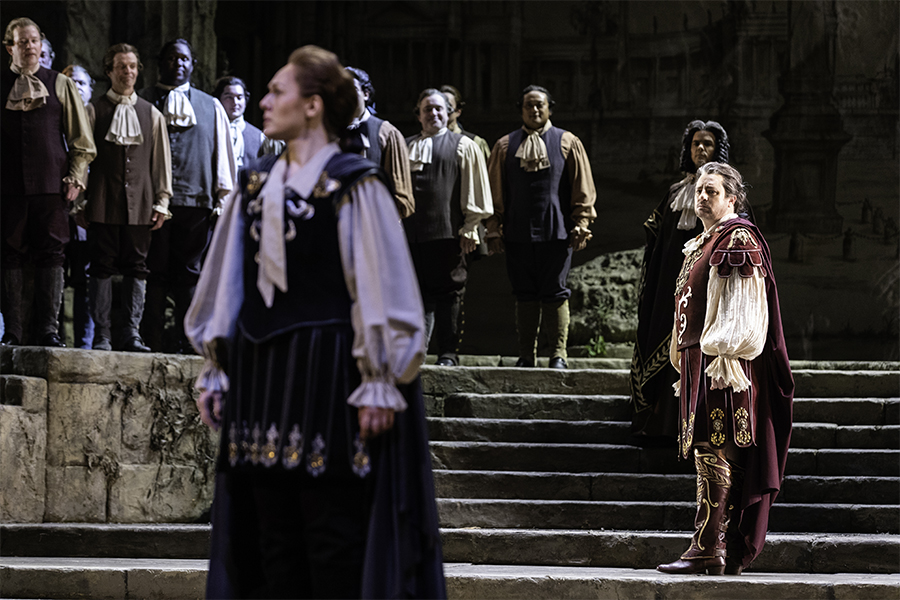
King Idomeneo (Matthew Polenzani) looks lovingly at his son, Idamante (Angela Brower) in Lyric's 2018/19 production of Mozart's Idomeneo.
Commendatore
They say a parent's love knows no bounds, and that is certainly the case for the Commendatore in Mozart's Don Giovanni. This protective papa faces off with the Lothario who just ravished his daughter, Donna Anna. Although that close encounter costs the Commendatore his life, he later returns as a ghostly statue to drag the unrepentant seducer to hell.
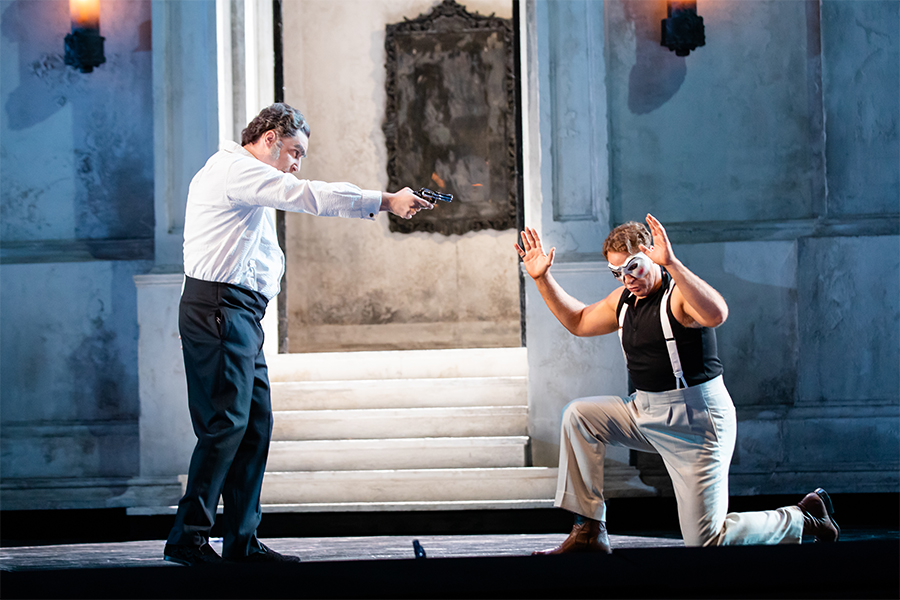
The Commendatore (Mika Kares) confronts Don Giovanni (Lucas Meachem) in Lyric's 2019/20 production of Mozart's Don Giovanni.
Giorgio Germont
In La traviata, a classy courtesan named Violetta falls in love with an ardent young admirer, Alfredo Germont. Unfortunately, Alfredo’s father, Giorgio, has issues with the situation. He tries to stop Violetta from living with his son out of fear that it will reflect poorly on his family. Eventually, however, he realizes he's misjudged Violetta and must rush to fix his mistakes before it’s too late.
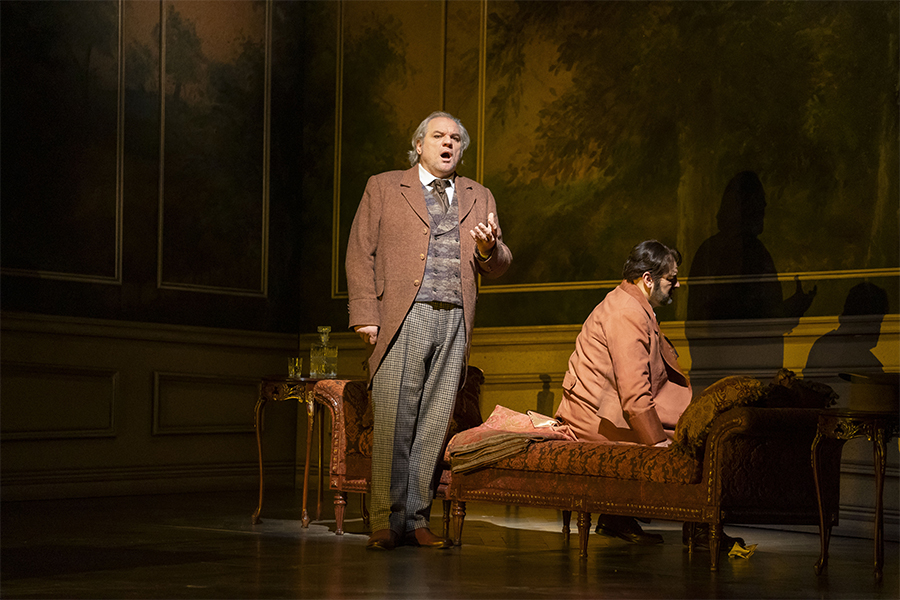
Giorgio Germont (Željko Lučić) with his son, Alfredo (Giorgio Berrugi) in Lyric's 2018/19 production of Verdi's La traviata.
Wotan
While it is true that Wotan left his favorite daughter asleep on a mountain surrounded by a ring of fire, he is one of opera's greatest patriarchs. He rules the realm of the gods with an iron fist, yet is not afraid to occasionally show his softer side with his children. While his greed and meddling ultimately lead to the downfall of the gods, he's still the best father figure in Wagner's Ring cycle.
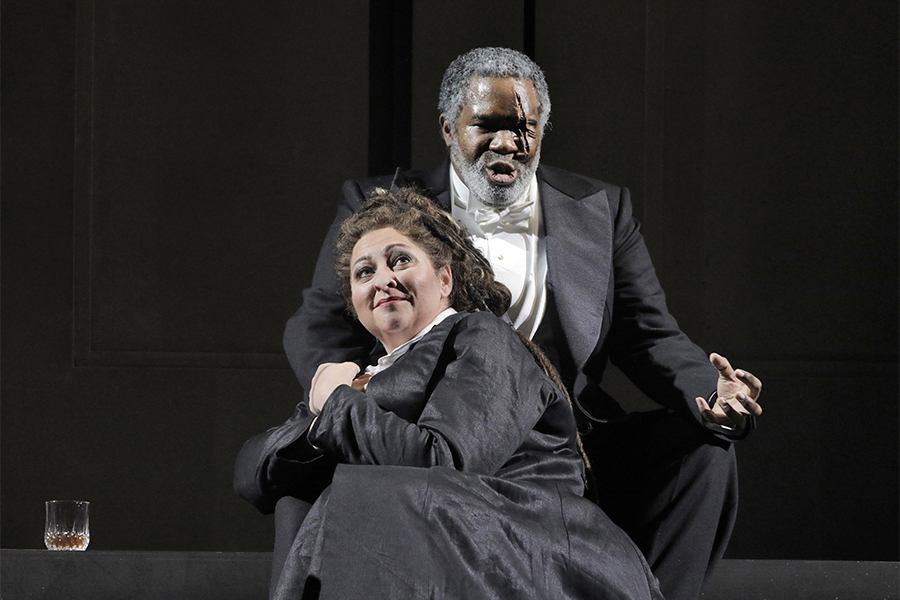
Wotan, king of the gods (Eric Owens) with his favorite daughter, Brünnhilde (Christine Goerke) in Lyric's 2017/18 production of Wagner's Die Walküre.
Pandolfe
The stepmother in the Cinderella story is famously cruel and selfish, but Pandolfe in Cendrillon is a sensitive fella. He loves his daughter deeply and often misses the life they had together before he married the countess. He obeys his new wife, but he isn’t afraid to stand up to her when his daughter needs him most.
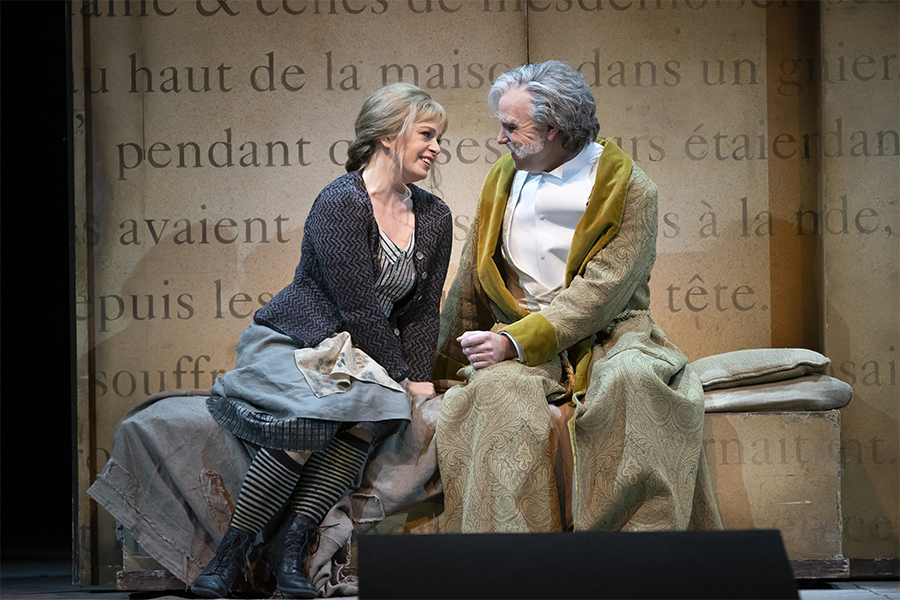
Siobhan Stagg (Cendrillon) with Derek Welton (Pandolfe) in Lyric's 2018/19 production of Massenet's Cendrillon.
Rigoletto
One of Verdi's most complex characters, Rigoletto is obsessed with protecting his beloved Gilda from the evils of society. Unfortunately, by hiding his daughter away, he leaves her vulnerable to the smooth-talking Duke of Mantua. Following a hearbreaking series of events, Rigoletto unwittingly ends up paying an assassin to kill his own daughter.
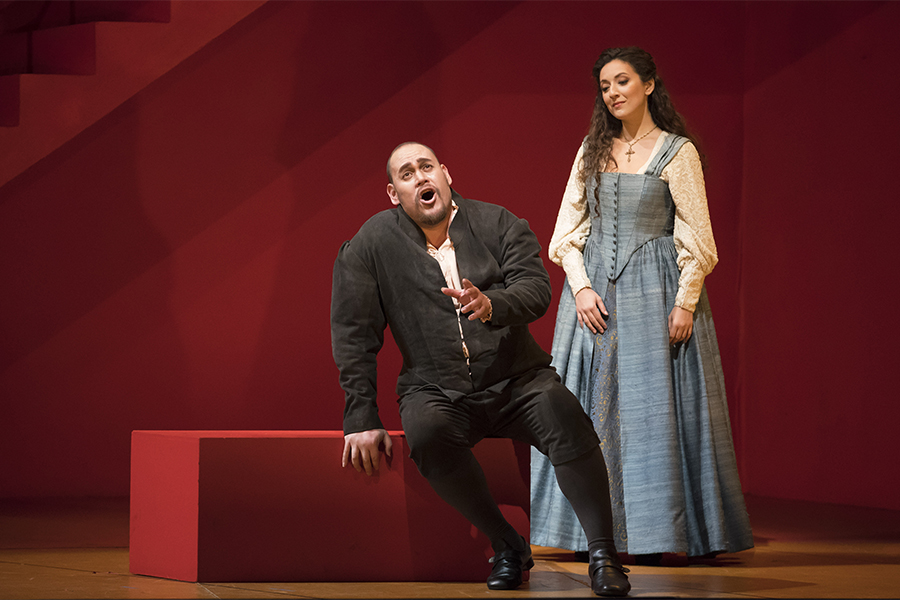
Rigoletto (Quinn Kelsey) and his daughter Gilda (Rosa Feola) in Lyric's 2017/18 production of Verdi's Rigoletto.
Agamemnon
Although he is never seen onstage, Agamemnon — Elektra’s father — is one of the most important characters in Elektra. After her mother murders him, Elektra is devastated by grief. She spends the whole show obsessively plotting her revenge, driven by her love for her dead father.

Elektra (Nina Stemme) revels in her mother's downfall in Lyric's 2018/19 production of Strauss's Elektra.
King of Scotland
The King of Scotland, Ginevra's father in Ariodante, only wants the best for his daughter. He approves of her fiancé Ariodante and is about to welcome him into the family when Polinesso (a villain dressed in priest's clothing) sabotages the romance. After a series of miscommunications pulls this father–daughter duo apart, the King realizes the truth and attempts to reconcile with Ginevra.
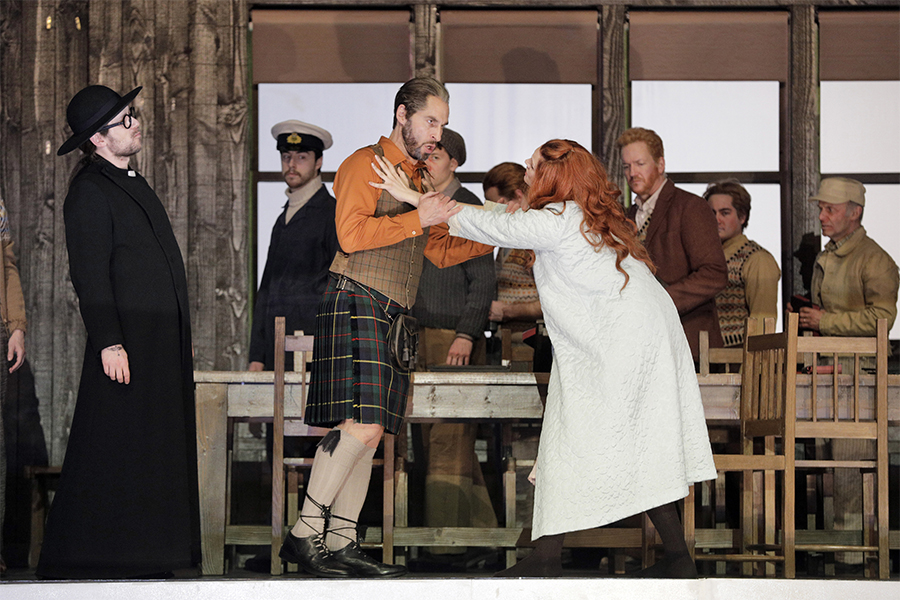
Polinesso (Iestyn Davies), the King of Scotland (Kyle Ketelsen), and his daughter Ginevra (Brenda Rae) in Lyric's 2018/19 production of Handel's Ariodante.
Count Walter and Miller
Two fathers butt heads in Verdi's early opera, Luisa Miller. Count Walter (father of Rodolfo) imprisons Miller (father of Luisa) for defending his daughter's right to choose her own husband. Luisa ultimately sacrifices her own happiness for her father's freedom by agreeing to marry a man she despises. In the end, both fathers are heartbroken as their children would rather die than live apart.
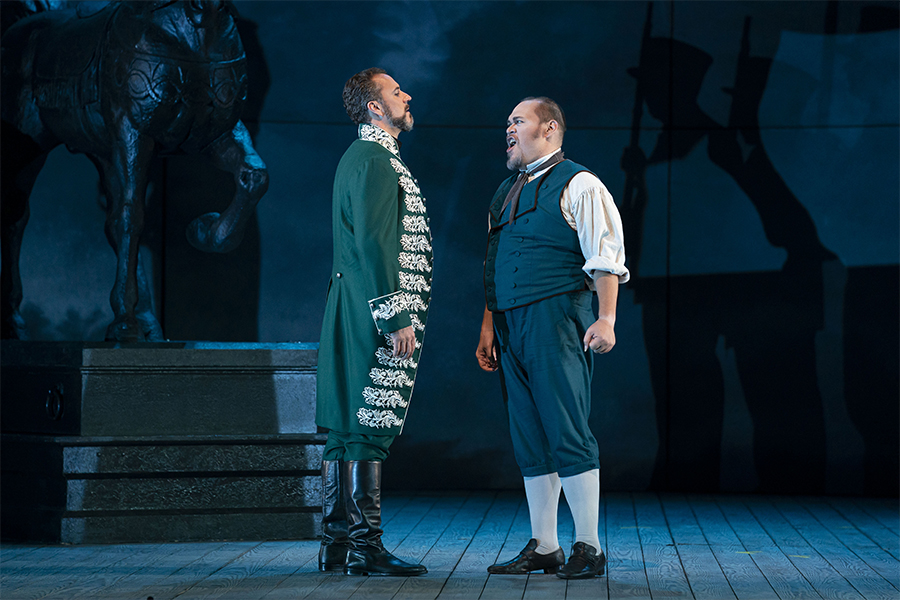
Count Walter (Christian Van Horn) and Miller (Quinn Kelsey) go head to head in Lyric's 2019/20 production of Verdi's Luisa Miller.
Vodník
With dreams of living on land, Rusalka confides in her father, Vodník, who warns that becoming human will only lead to heartbreak. Much to his dismay, Rusalka gets her wish with the assistance of the witch, Ježibaba. The Prince she loves is frustrated at her muteness and turns out to be less charming than she had hoped. Following the Prince's rejection, Vodník mourns the loss of his daughter's innocence and curses the man who broke her heart.
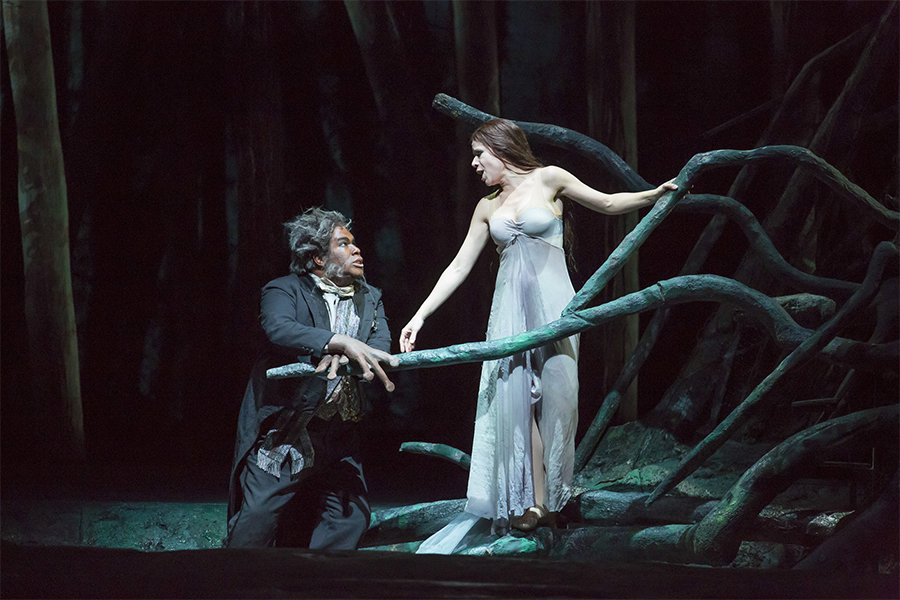
Vodník (Erik Owen) pleads with his daughter, Rusalka (Ana María Martínez), to listen to him in Lyric's 2013/14 production of Dvořák's Rusalka.
Simon Boccanegra
Simon Boccanegra couldn't be part of his daughter's life after she vanished as a child, to be raised (unwittingly) by her grandfather. After years of separation, father and daughter are reunited and he accepts Amelia's choice of husband, even though they are enemies. Boccanegra pardons Adorno for the sake of his daughter, blessing their union with his dying breath.
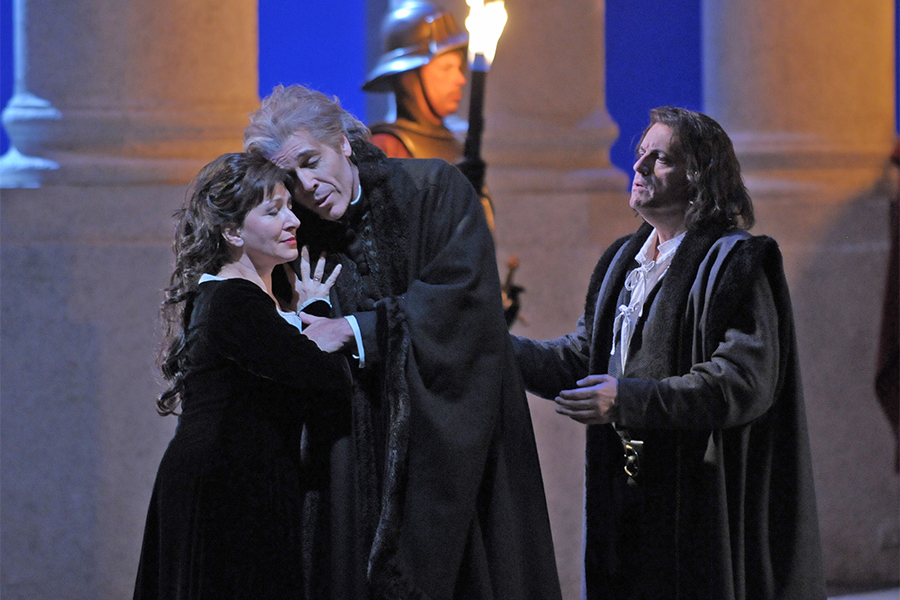
Amelia (Krassimira Stoyanova), Simon Boccanegra (Thomas Hampson), and Adorno (Frank Lopardo), in Lyric's 2012/13 production of Verdi's Simon Boccanegra.
Gianni Schicchi
When problems arise, Lauretta knows her father is the one person who can be counted on for a fool-proof plan. While not many dads would willingly impersonate a dead man to provide their daughter with a dowry, that's excactly what Gianni Schicchi does in this Puccini one-act comedy. He'll do whatever it takes to help Lauretta marry the man of her dreams, and she knows it, as you can hear in of one of opera's most touching arias, "O mio babbino caro" ("Oh my dear papa").
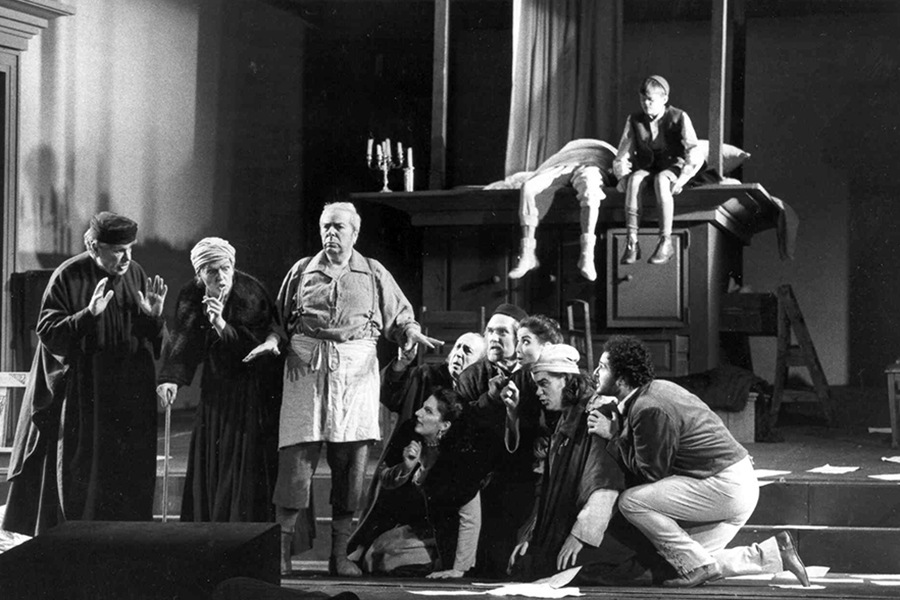
Rolando Panerai (center) in the title role of Lyric's 1996/97 production of Puccini's Gianni Schicchi.
Nabucco
When King Nabucco is usurped by his illegitimate daughter, Abigaille, he goes mad and is tricked into signing his real daughter's death warrant. Thankfully, the King eventually comes to his senses, saves his daughter, and frees the Israelite slaves.
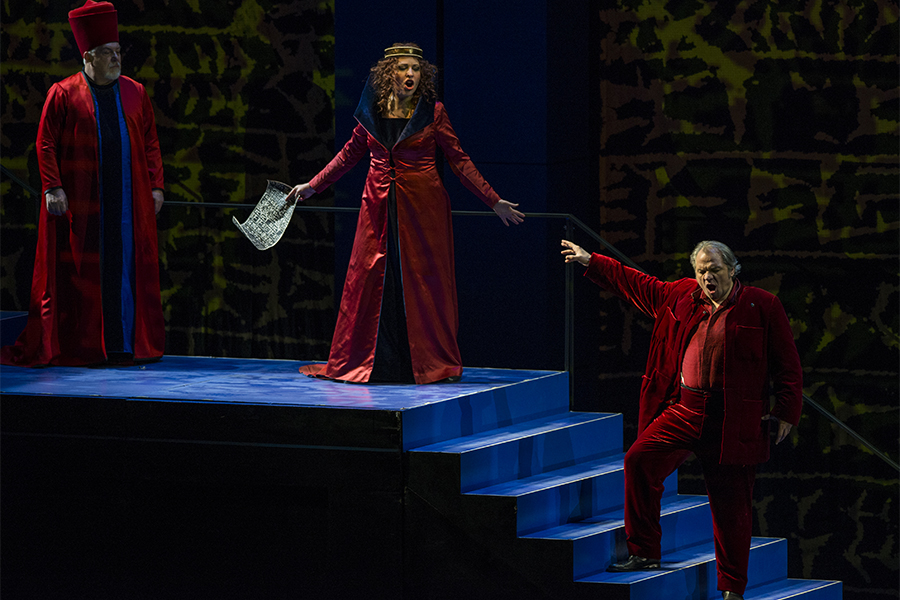
Abigaille (Tatiana Serjan) steals her father King Nabucco's (Željko Lučić) crown in Lyric's 2015/16 production of Verdi's Nabucco.
Pollione
In Bellini's Norma, Pollione, the Roman proconsul abandons his title-role lover and their two children for her friend. However, when he is put on trial, he begs for his childrens' lives to be spared (yet ultimately leaves them without parents by following Norma into a funeral pyre).
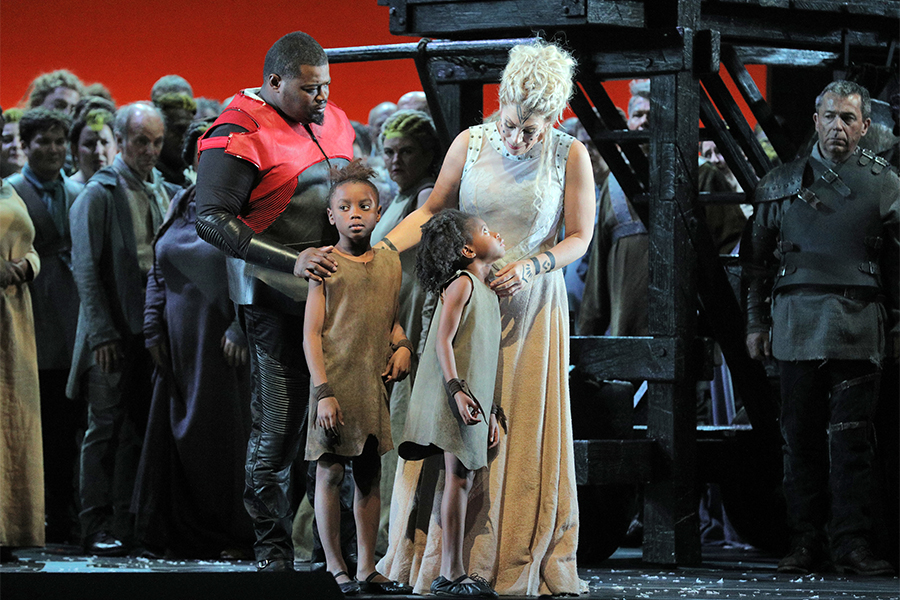
Before their executions, Pollione (Russell Thomas) and Norma (Sondra Radvanovsky) say farewell to their children in Lyric's 2015/16 production of Bellini's Norma.
Mime
Mime, a dwarf, might not be anyone’s biological father, but he takes on the role anyway. In Siegfried, Mime fosters a human boy and raises him to slay a dragon. But thanks to the words of a wandering prophet, this father and son turn against each other in a deadly battle. Mime may have trained Siegfried too well!
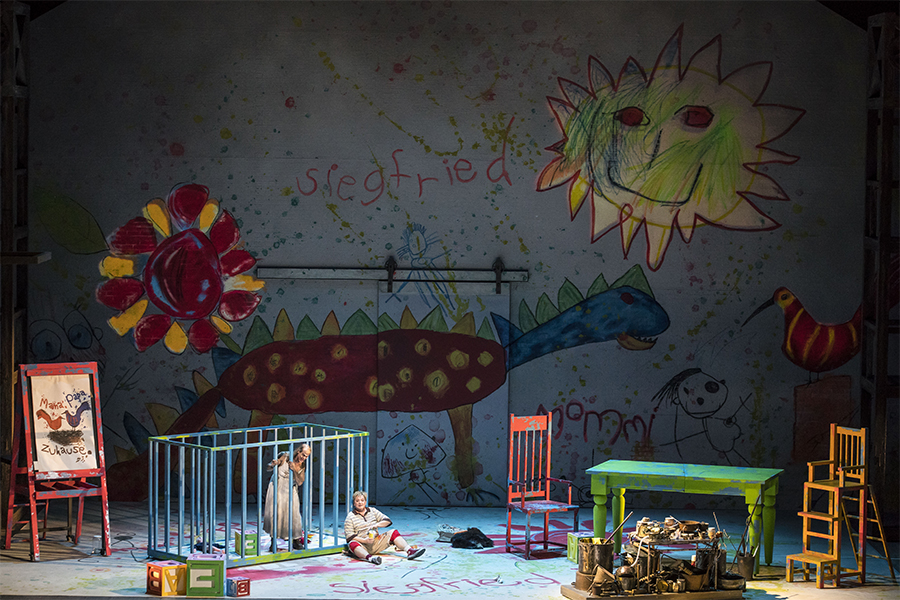
Matthias Klink (Mime) and Burkhard Fritz (Siegfried) in Lyric's 2018/19 production of Wagner's Siegfried.
Wozzeck
Wozzeck works hard to support his mistress and their young son, yet is far from a loving father. He claims to be "too poor to be virtuous," and lives up to that statement as jealousy turns murderous. When Wozzeck discovers his lover has been unfaithful, he stabs her before drowning himself, orphaning their child.
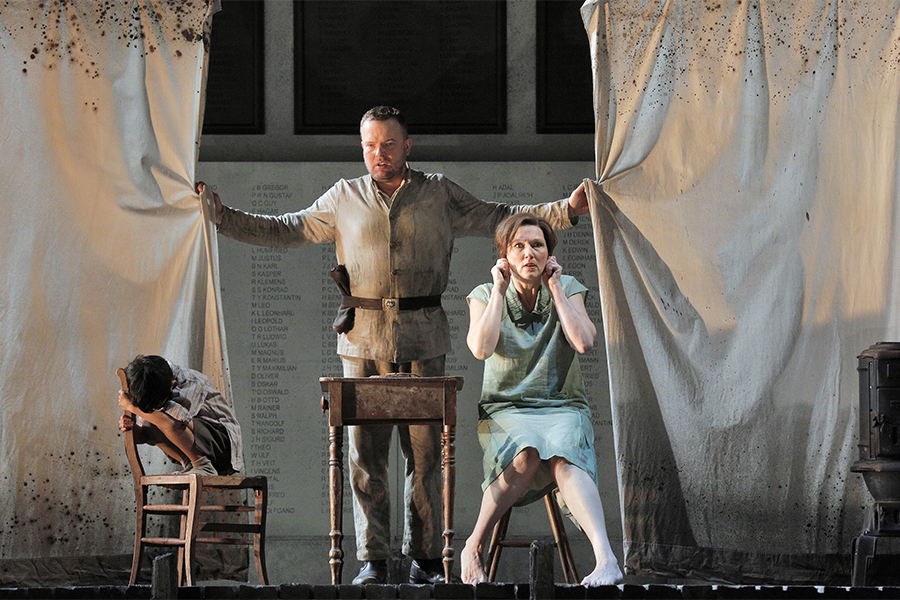
Wozzeck (Tomasz Konieczny) confronts his mistress, Marie (Angela Denoke), and their child (Zachary Uzarraga) in Lyric's 2015/16 production of Berg's Wozzeck.
